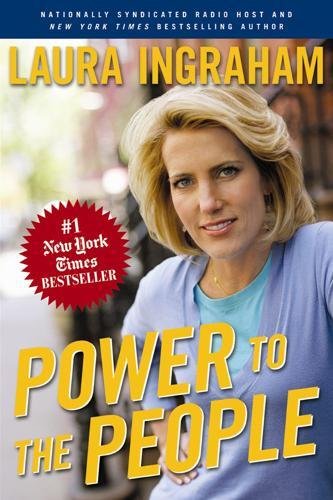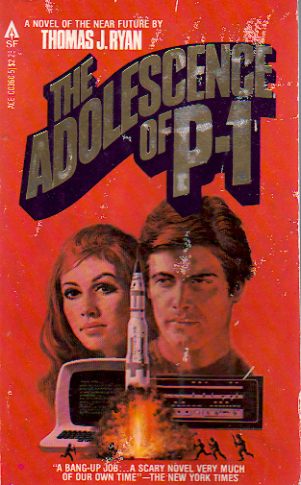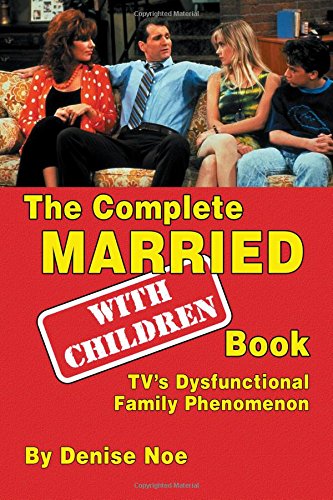 Several readers have asked me to explain
Several readers have asked me to explain
my extravagant admiration for Laura Ingraham
. Is it, they ask, romantic? Aren’t I a married guy, though?
08/31/2017
That was the month that was. If you are a native New Yorker you probably know — and if you're not, you probably don’t know — the "August!" joke.
Two guys, Benny and Sammy, meet on the street in the garment district.Benny: "Hey, Sammy! How ya doin'? Haven’t seen you for ages."
Sammy: "Benny! Been a long time! How are you? How’s business?"
Benny: "Don’t ask! Don’t ask! Listen: April and May, business was so bad I wouldn’t wish it on Yasser Arafat. June and July, I lost all my orders from April and May! But hey, you don’t want to hear my troubles. How are things with you? How’s the family?"
Sammy: "Don’t ask! Don’t ask! Since I saw you last, my wife left me, my son dropped out of college, and my daughter married a shvartze. What could be worse than that?"
Benny: "August! …"
Writing this on the last day of the month, I’m in kind of a Benny mood. What a month!
August 2017 delivered one of those great waves of moral hysteria that periodically pass through modern American society like plagues sweeping medieval Europe.
It’s instructive to take a glance at the recent pattern of these episodes. They have evolved from a traditional late-20th-century narrative of low-class whites being cruel to helpless, innocent blacks, through to a more comprehensive cultural revolution aimed at the deep foundations of the American nation: at its history, laws, and founding population.
It was a mere five and a half years ago that George Zimmerman shot Trayvon Martin. That incident pioneered a new, more aggressive style of news mis-reporting.

With encouragement and support from the Obama White House and the Eric Holder Justice Department, what Chinese bloggers refer to derisively as the baizuo (pronunciation here), the white left, who dominate our culture, established a narrative of rogue white racist Zimmerman stalking and murdering baby-faced teen Martin.
That narrative collapsed when tested to courtroom evidentiary standards. Baby-faced Martin turned out to possess gold teeth grills, burglary tools, and a marijuana habit; he had violently assaulted Zimmerman, who had then killed Martin in justifiable self-defense. Zimmerman was not even white.
By that time, though, Barack Obama had been re-elected and the overarching narrative of malicious hate-filled whites and fearful minorities had been reinforced sufficiently to overcome one narrative collapse. The anti-white anarchist movement Black Lives Matter was founded shortly afterwards.
The police shooting of black street hoodlum Michael Brown in Ferguson, Missouri in August 2014 ignited the next wave of hysteria. Brown, however, like Martin, had a personal history that did not bear very close examination. This significantly weakened the overarching narrative.
Some thoughtful whites who had accepted the narrative were now losing interest. If the destruction of traditional America and the replacement of its legacy population were to proceed, a new approach was needed.
Fate provided a golden opportunity in June 2015, when a deranged young white man murdered nine blacks in a Charleston, South Carolina church. The killer owned a website that showed him posing with a Confederate Battle Flag. Suddenly that flag, which a few weeks previously I had seen on sale at the National Park Service visitor centers on Civil War battlefields, was an emblem of racial hatred, to be expunged from the national consciousness.
That was a decisive turn. Suddenly all of American history was open to attack by the baizuo, with the Civil War as a primary focus.
Then, just as triumphalism was settling in, Cultural Marxism suffered a devastating setback: the election of Donald Trump. Reeling from the psychological shock, the baizuo retreated into fantasy. Russia had hacked the election!
That didn’t sell very well with Normal Americans. Then, just as the Russian-hacking ice floe was melting beneath the baizuo’s feet, along came a big, thick, new one: the Charlottesville riot. The baizuo leapt.

It’s pretty clear now that Charlottesville was a law-enforcement failure. The Unite the Right demo, however objectionable you think its slogans were, would have passed off without trouble if the antifa had not attacked it when the police stepped aside to let them do so. If there were any justice in this world, the Governor of the state, the Mayor of the city, and the Chief of Police would all be in jail for what they caused to happen.
And the baizuo were still fired up with post-election passion. Secure on their sturdy new ice floe, they went ahead with their expanded, re-directed narrative: Hey, hey, ho, ho, American history has to go!
The baizuo got a whole new lease of life this month. Their new show will run and run, unless Normal Americans rise up to stop it, of which so far I don’t see much sign.
What comes after "Nazi"? Tom over at Radio Free New Jersey posed an interesting question the other day: What comes after "Nazi"?
Time was, anyone more conservative than Nelson Rockefeller was just "far right." Then a sort of abuse creep set in. Soon the same persons were "extremists"; then "bigots"; then "white supremacists." Now we're all "Nazis."
It’s hard for them to ramp up the abuse any further. What’s beyond "Nazi"? Tom suggests "actual slave owners." Sure, it’s rather starkly at odds with reality; but the CultMarx mob left reality behind long ago, so that shouldn’t be a hindrance.
If the implication is "willingness to contemplate the mass murder of opponents," then "communist" ought to be in the running. The communists killed far, far more people than the Nazis, although admittedly they had a much bigger geographical area and several more decades to operate in.
Not much chance the baizuo will take up "communist" as an insult, though. They like communism.
Vae victis. On the particular issue of how we should regard Robert E. Lee, I like Dwight Eisenhower’s approach when asked just that question.
From Mathew Lively’s blog three years ago. This is Ike writing from the White House in 1960:
Respecting your August 1 inquiry calling attention to my often expressed admiration for General Robert E. Lee, I would say, first, that we need to understand that at the time of the War between the States the issue of secession had remained unresolved for more than 70 years. Men of probity, character, public standing and unquestioned loyalty, both North and South, had disagreed over this issue as a matter of principle from the day our Constitution was adopted.
That’s quite right: no-one knew whether secession was lawful or not.
Ike’s viewpoint keys nicely to the cheeky question British schoolboys of sixty years ago liked to ask: If it was OK for the thirteen colonies to secede from the British Empire in order to found a slave-owning republic, why was it not OK for the eleven Confederate states to secede from the United States in order to found a slave-owning republic?
Some issues can only be decided by force of arms. This one was, and the victors wrote the history books.
Married to Goldman Sachs. And Charlottesville was only the second cultural tremor of the month. First was the August 9th firing of James Damore from Google for wondering on a company email list whether the low representation of women in software work might be caused by innate sex differences.
I've done full commentary on the Damore firing elsewhere. Here I just want to add a single personal point on those differences.
Remember, please, that there are two independent variables here: differences in ability and differences in preference. It might be that the sexes display widely different distributions of ability, but no differences in preference; or the contrary; or anything in between.

OK, meet Mrs Derbyshire (right) a lady of great intelligence and diligence. She learned English from a standing start in her teens, and mastered the language completely. Her vocabulary now is, I am sure, bigger than the average American’s. She was a star student at her undergraduate school, and has produced straight A’s on various certificate and diploma courses taken since.
We married in 1986 and she came to join me in New York at the end of that year. Once settled in, she declared her intention to become a computer programmer — the work I was doing at the time. I signed her up for some courses at NYU School of Continuing Education. She breezed through the courses, graduating in 1990.
That year we moved back to England. I'd been doing contract computing work in London for years; so I did some networking and fixed my lady up with a summer job cutting code for Goldman Sachs over there.
Yes! I am the husband of a former Goldman Sachs employee!
She got a good report for her summer’s work, but decided to bail out from programming and try some other line of employment. Why? I asked.
"I hate it! I just hate it! It’s so … dry."
So why had she thought it would be a good career for her?
"It just seemed so up-to-date and prestigious."
We started a family instead. When the kids no longer needed full-time attention, Mrs Derbyshire put herself through a different career course, in which of course she got straight A’s.
Memorable exchanges about her final exams for that course, one of which was on a Tuesday, one on a Thursday. The Tuesday result came out. How did she do?
"I got 102."
Out of what?
"Out of 100."
Huh?
"Two points for a bonus question."
Oh.
Then the Thursday result came out. How did she do?
"I got 106."
Lemme guess: three bonus questions?
"Right."
Now my clever lady is very happily employed in a line of work she likes.
Software archeology. I've been indulging myself in a little nostalgia about my own programming career.

This is from reading Garth Eaglesfield’s The Programmer’s Odyssey. Eaglesfield is English, and a year younger than me, so his IT career went parallel with mine. We saw the same changes come in: relational databases, client-server, structured programming, object-oriented, LANs, the Internet … I was amazed at how much I've forgotten.
I can’t really recommend the book unless you walked the same path as me and Eaglesfield. Most of the technical stuff is of strictly historical interest.

And I think he should have given at least a passing mention to Thomas Ryan’s 1977 sci-fi novel The Adolescence of P-1, which every mainframe programmer known to me was reading in the first year of the Carter administration. It was quite an achievement, getting a halfway-decent sci-fi plot out of those great lumbering behemoths with their miles of cabling, $100,000 custom air conditioning units, and 64K of RAM.
Now I’m getting the urge to go write some COBOL. Don’t worry, though, it'll pass.
The open Internet: a fool’s paradise. I haven’t actually cut code for a living since 2001, so the Internet came up towards the end of my career.
I can remember thinking at the time: This is too good to be true. No government more control-freaky than the Coolidge administration — which means no post-WW2 government at all — was going to let information and opinion be distributed this fast and freely for long.
So it has proved, although the run of freedom was longer than I expected. Websites with obnoxious opinions have already been pushed off the Internet; those of us who merely dissent from political orthodoxy won’t be far behind. PayPal has already dropped VDARE.com. What we are now wistfully calling "the open Internet" will soon be a fading memory.
There are workarounds we can employ to stay on the Internet, and we shall take full advantage of them. Using them, however, involves some extra effort, and technical skills that most ordinary users don’t have and won’t be bothered to acquire.
Further, these workarounds will end up in an arms race with governments, as the Virtual Private Networks of China and Russia have. Judging by the current state of the VPNs, that’s a race that governments will win at last.
Ah, the open Internet! Fun while it lasted, but … a fool’s paradise.
Literary eclipses. We had an eclipse of the sun on August 21st. That got me wondering why eclipses don’t figure more in literature.
There are some passing references in Shakespeare — Gloucester in King Lear mutters that "These late eclipses in the sun and moon portend no good to us" — but eclipses as an actual plot device seem to be rare.

The only one I can think of is in King Solomon’s Mines. A small band of English explorers in darkest Africa gets stuck in a Zulu kingdom ruled over by a treacherous and homicidal king. They assert themselves, overthrow the king, and save the life of a fair maiden (fair in pulchritude: she is perfectly black) by pretending to cause a lunar eclipse which one of them saw listed in his diary.
"The moon is dying — the white wizards have killed the moon," yelled the prince Scragga at last. "We shall all perish in the dark," and animated by fear or fury, or by both, he lifted his spear and drove it with all his force at Sir Henry’s breast. But he forgot the mail shirts that the king had given us, and which we wore beneath our clothing. The steel rebounded harmless, and before he could repeat the blow Curtis had snatched the spear from his hand and sent it straight through him.Scragga dropped dead. [Chapter 11]
Great stuff. Do kids still read these Victorian adventure yarns? I suppose not: too politically incorrect. Well, it’s their loss.
The whey that can be spoken of is not the constant whey. Following Dennis Mangan’s prescription, I drink whey protein after my workout. Mrs. Derb buys whey powder for me in great big bags from the local CostCo.
Mentioning to her one day that I needed a new supply, I found myself wondering what the Chinese for "whey" is. The word already sounds Chinese; the Mandarin syllable wei is pronounced pretty much the same.
Since China’s is a non-dairy culture that historically had no butter or cheese, I guessed that when, after three thousand years of doing without a word for whey, they got acquainted with the stuff, they'd just import "whey" into their language as a loan-word, pronounced wei and assigned some suitable written character.
That was my guess: that the Chinese for "whey" is wei.
I tried this speculation out on the Mrs. "What’s the Chinese for 'whey,' honey?"
She: "I don’t know. We don’t have the stuff."
Off to a big fat English-Chinese dictionary.
whey, n. ??.
The first character there is a ru, meaning "milk." The second is a jiang, meaning any thickish liquid not oil or blood. The Chinese for "whey" is therefore ru-jiang. (Third tone, first tone; listen here. I know, Google Translate says "milk," not "whey." They are wrong. Complain to them, not me.)
So much for my theorizing.
Now I want to hear Jared Taylor pronounce "whey" …
The face in the misty light.
my extravagant admiration for Laura Ingraham Several readers have asked me to explain
Several readers have asked me to explain
Not only am I a married guy, I am the most monogamous guy (translation, for readers visiting from the manosphere: the greatest traitor to my sex) that you will meet in a month of Sundays. The sole object of my romantic affections is Mrs Derbyshire.
My feelings for Laura are of a different kind. They are founded on a single tiny incident, which I shall now relate.
In 2007 Laura published a book of political and social commentary, Power to the People. I was still respectable in establishment-conservative circles, so I got invited to the book signing. It took place at the rather grand house of one of Laura’s supporters, in an upscale suburb of Washington, D.C.
It was an evening event, so I needed somewhere to stay the night. I had a Chinese friend — call him Wu Ming — who lived in North Potomac, not far from the venue. He kindly agreed to put me up on his couch.
I arrived at Wu Ming’s house in late afternoon. We sat and chatted for a while before I set out for the book signing. I need to tell you some things about Wu Ming.
He’s a very brilliant man — a geneticist, currently in fact getting filthy rich in Taiwan as partner in a genetics business there. I'd gotten to know him many years before, when he was at Cold Spring Harbor lab, just down the road from my Long Island home. In 2007, when this story takes place, he'd moved to the Washington area to work at a neuroscience research institute.
Wu Ming is, though, a bit eccentric. You have to imagine a sort of cross between an absent-minded professor and a Chinese peasant bumpkin. He wears old, ill-fitting clothes, with a V-neck sweater under his suit jacket and shoes the wrong color. He has that ungovernable, un-combable type of hair you often see among Chinese males, sticking up all over, but rarely bothersome enough to him that he'll get it cut. He stares at you fixedly, perfectly immobile, when you are speaking — an effect made more alarming by his Coke-bottle-thick glasses.
His answers, when you've finished what you're saying, tend to skip over what should logically have been the next two or three exchanges in your conversation. He speaks Lab English, rattling off words like "norepinephrine" and "paradimethylaminobenzaldehyde" with perfect fluency but putting the wrong stress on "pineapple" or "bicycle."
He’s a good-hearted guy, though, and very active in promoting Chinese dissident causes. (Which is why he’s now in Taiwan, not the mainland where he was born and raised.) Like untold numbers of other Chinese people, he loathes the Communist Party.
So I’m about to leave Wu Ming’s house to go to Laura’s book signing, when on an impulse I ask him if he'd like to come with me. He says he would, and asks if it’s OK to bring some of his dissident pamphlets along with him. I don’t see why not, so we set off with Wu Ming carrying his pamphlets in a beaten-up old shoulder satchel.
The book signing, when we got there, was a grander affair than I'd supposed. Laura is really well-connected. The reception rooms were full of TV and newspaper journalists, magazine editors, cabinet officers, and congresscritters. There were two, count 'em two, Supreme Court justices present (Thomas, Scalia).
It was D.C. high society. Poor Wu Ming was miserably out of place. I tried to bring him in to conversations I was having with journalist friends, but he just gaped and stared. There was a high noise level; I don’t think he could follow much of what was being said. I felt sorry for his embarrassment and wished, for his sake, that I hadn’t brought him.
The time for book signing arrived. Laura sat at a table with a pile of books. We all formed a line and shuffled along towards her.
When I reached her, Wu Ming by my side, I placed a book for her to sign and we exchanged some pleasantries. (She knew me as a National Review writer.) I thought I'd better explain Wu Ming, so I introduced him as a friend from China. For some conservative spin, I added that he worked with anti-communist dissidents. Poor Wu Ming was near catatonia at this point, just staring slack-jawed and speechless at Laura.
This is where Laura won my undying devotion. With bigfoot TV bloviators, Secretaries of vast federal Departments, and Supreme Court justices waiting in line behind us, she locked eyes with Wu Ming, gave him her biggest, sunniest smile, and said: "You know, I don’t say half as much as I should about the situation of dissidents over there. I’m really glad you came along to remind me. What are some good reliable sources I should use?"
Thawed by that sunny warmth, Wu Ming started pulling pamphlets out of his satchel. "I have … papers … documents … Please read them …" he stuttered.
Laura took them all and spread them out on the desk in front of her. "This is good stuff! I shall read it all, and speak up for these brave people! I’m sorry I haven’t done more in this line …"
She was, in short, a perfect lady, treating this gauche, rumpled, mumbling, peculiar-looking foreigner as if he was the person this grand event should have been about, not her. It was one of the most impressive displays of superlatively good behavior I have ever seen.
One of the worst things you can do to another person is take away his dignity. Contrariwise, one of the best things you can do is to give dignity to someone in a situation where he doesn’t feel he has any. That’s what Laura did that evening ten years ago, to my friend.
As I said, a tiny incident; but telling. Laura Ingraham is a great American lady, U.S. Grade A. I'll fight anyone that says otherwise.
Married … With Children and the bluenoses. One very minor skirmish in the U.S.A.’s Culture Wars occurred on January 15th 1989, when a Michigan housewife named Terry Rakolta sat down with her kids in the family living-room to watch TV. Mrs Rakolta, I should say, was not just any Michigan housewife: her sister was married to Mitt Romney’s brother, who was also, of course, like Mitt, a son of former Governor George Romney.

Mrs Rakolta didn’t know anything about the show she was about to watch, only that it was airing at 8:30 pm, well within family viewing time, and that its title suggested a wholesome family sitcom.
The title was Married … With Children, and that particular episode (available on YouTube)featured a male stripper, cross-dressing, and a lot of lingerie jokes.
Mrs Rakolta was outraged. She started a campaign to get advertisers to shun the show. Her success was mixed. Some advertisers did drop the show; and Fox moved the show time from 8:30 to 9:00 pm. On the downside:
The show’s ratings soared as Rakolta worked against it. Many of the curious viewers became fans of the show. It is likely that her campaign may have been partially responsible for the longevity of the program.
I took that quote from a book that’s just come out, The Complete Married With Children Book: TV’s Dysfunctional Family Phenomenon, by Denise Noe.

Ms Noe was kind enough to send me a copy of the book; not entirely at random, but because I praised the show in a National Review article back in 2003. (MWC aired from 1987 to 1997; I'd been watching reruns.) She gives that article a mention, and quotes me that MWC was "one of the most conservative shows on TV." You'll have to read my article to know why I thought that; it’s an extended argument.
At that point in my journalistic career I'd been hanging out with American conservatives long enough to get irritated by the bluenoses who infest their ranks. I strongly dislike bluenoses, both the older kind of sexual prudes and the newer, even more horrible variety of virtue signallers scolding us about "racism," "homophobia," and the rest. By no means all of these latter-day bluenoses are on the left.
I much prefer the honest white-prole coarseness of the Bundys. To this day I am fond of quoting some of Al’s lines: "Women! Can’t live with 'em … can’t live with 'em."
I'll concede, though, that Mrs Rakolta had a point about the show airing at 8:30 pm. It was a sophisticated show, for adults. Eleven pm would have been more suitable.
Ms Noe has done a good job of telling the show’s story across its eleven seasons, summarizing the main plots. I seem to have missed the second season altogether: I'd like to see the Bundy family vacation in Dumpwater, Florida. Maybe I'll buy a DVD set.
Math Corner. The brainteaser at the end of my July Diary continues to generate email. I noted one of them in an August 9th blog post here.
That reader pointed out the need for an existence proof, as this is one of those problems where "does the expression have a finite value?" is harder to answer than "what is the value if it exists?"
I replied that
Yes: In math, existence (that it is) is often harder to prove than essence (what it is). I have an intuitive inkling — please don’t ask me to justify it — that the two kinds of problems appeal to two different personality types, existentialists and essentialists.I’m an essentialist; I always found existence proofs a tiresome chore, though of course I appreciate the necessity.
Well, a different reader emailed in later in the month with a nifty example of the need for existence proofs.
Mr Derbyshire: To convince my students that something more is needed than what you provided in your published solution, I often use an example like the one below, where I "prove" an obviously false statement.Prove: 3 = -5 + 2(-6 + 2(-7 + 2(-8 + … ))).
Proof. Using the identity n = -(n + 2) + 2(n + 1), substitute successively for n the values 3, 4, 5, … to get
3 = -5 + 2(4)
= -5 + 2(-6 + 2(5))
= -5 + 2(-6 + 2(-7 + 2(6))
= -5 + 2(-6 + 2(-7 + 2(-8 + 2(7)))
= …
Just as in your solution, "you end up with an infinitely long expression" that yields the equation that was to be proved.
Of course, it’s the "tail" that causes the trouble, and you can’t just wish it away.
Thanks for that, Sir. Score one for the existentialists.
Sometimes it’s tough being an essentialist. Still, at least I don’t have to hang out in Parisian cafes, smoking Gauloises and parsing Heidegger.
John Derbyshire writes an incredible amount on all sorts of subjects for all kinds of outlets. (This no longer includes National Review, whose editors had some kind of tantrum and fired him. ) He is the author of We Are Doomed: Reclaiming Conservative Pessimism and several other books. He has had two books published by VDARE.com com:FROM THE DISSIDENT RIGHT (also available in Kindle) and FROM THE DISSIDENT RIGHT II: ESSAYS 2013.
For years he’s been podcasting at Radio Derb, now available at VDARE.com for no charge.His writings are archived at JohnDerbyshire.com.
Readers who wish to donate (tax deductible) funds specifically earmarked for John Derbyshire’s writings at VDARE.com can do so here.
This is a content archive of VDARE.com, which Letitia James forced off of the Internet using lawfare.